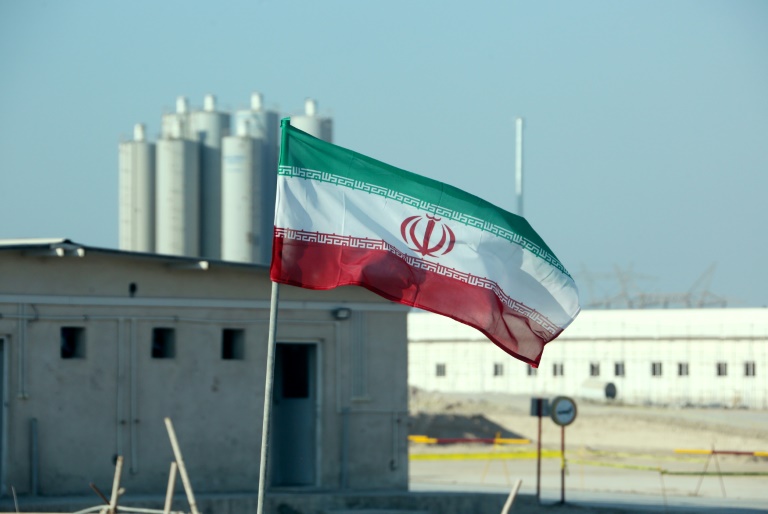The United States and European powers on Tuesday warned Iran that its latest uranium enrichment efforts could imperil the nuclear talks in Vienna, with Washington calling on Tehran to halt its “brinksmanship.”
The cross-Atlantic condemnation came hours after the International Atomic Energy Agency (IAEA) reported that Iran intended to enrich uranium to 20 percent, in the latest sign the talks based in Vienna — aimed at reviving a 2015 nuclear accord — could be stalling.
“We continue to urge Iran to stop this brinksmanship, to return to Vienna prepared for real talks, and to be in a position to be prepared to finish the work” that jump-started in April, State Department spokesman Ned Price told reporters.
Iran’s move takes it a step closer to developing materials that could be used to make a nuclear weapon.
“It is worrying that Iran is choosing to continue to escalate its non-performance of its JCPOA commitments, especially with experiments that have value for nuclear weapons research,” Price said.
“It’s another unfortunate step backwards for Iran.”
European powers also spoke out, with the foreign ministers of Britain, France and Germany expressing “grave concern” and warning that Iran’s move endangers the discussions.
“With its latest steps, Iran is threatening a successful outcome to the Vienna talks despite the progress achieved in six rounds of negotiations to date,” the ministers said in a statement.
Iran should return to the negotiations “without delay” and aim to bring them to a swift conclusion, they warned. “We have repeatedly stressed that time is on no-one’s side.”
Britain, France, Germany and the United States are among the global powers, along with China and Russia, that negotiated the deal with Iran aimed at restricting its nuclear program.
– ‘Operations began immediately’ –
An IAEA statement said Tehran had told the agency that it would be sending the enriched uranium to its research and development laboratory at the fuel production plant in Isfahan.
According to Iran’s state news agency IRNA, Kazem Gharibabadi, Iran’s permanent representative to the IAEA, said his country’s Atomic Energy Organization informed the IAEA nine days ago of its plan to use 20 percent enriched uranium for a research reactor.
“Operations began immediately,” Gharibabadi was quoted as saying, adding that the process will improve the quality and quantity of production of Iranian radiopharmaceuticals.
While Tehran insists it is only interested in nuclear technology for energy for medical purposes, it has gradually moved away from the terms of the deal it signed with world powers in 2015.
Then-president Donald Trump pulled the United States out of the deal in 2018, but the administration of President Joe Biden has expressed readiness to reenter the JCPOA if certain conditions are met by Iran.
Price said there was no set timeline for closing the window on negotiations with Iran.
But he made clear that Washington would reconsider if Iran continued with its “provocative steps” aimed at shrinking the breakout time to produce enough fissile material for a bomb — from a year at the time of the JCPOA to reportedly just months today.
“We see negotiations and diplomacy… as, for now, the best means to put Iran’s nuclear program back in a box,” he said.
The talks in Vienna to try to revive the JCPOA have not moved forward in recent weeks.
With Ebrahim Raisi, a new hardline president, due to take office in Iran on August 3 and succeed the more moderate Hassan Rouhani, it is also not clear what will happen when they do.










